
Can Singapore’s opposition really win the next general election and form a coalition government?
- Such a scenario is unlikely, observers say, noting it could be a gambit by new PM Lawrence Wong to make voters go for the safe option of returning the PAP to power
- With the PAP’s dominance ‘firmly entrenched’, key opposition parties have focused on seeking more transparency and accountability from the government
In an interview with the local press before he took his oath of office as Singapore’s fourth prime minister, Wong said it was “not unimaginable for two or maybe three opposition parties to come together, form a coalition and run the government”.
Wong will be leading the ruling People’s Action Party (PAP) into the next general election which must be held by November 2025 but is widely expected to happen sooner than this legal deadline.
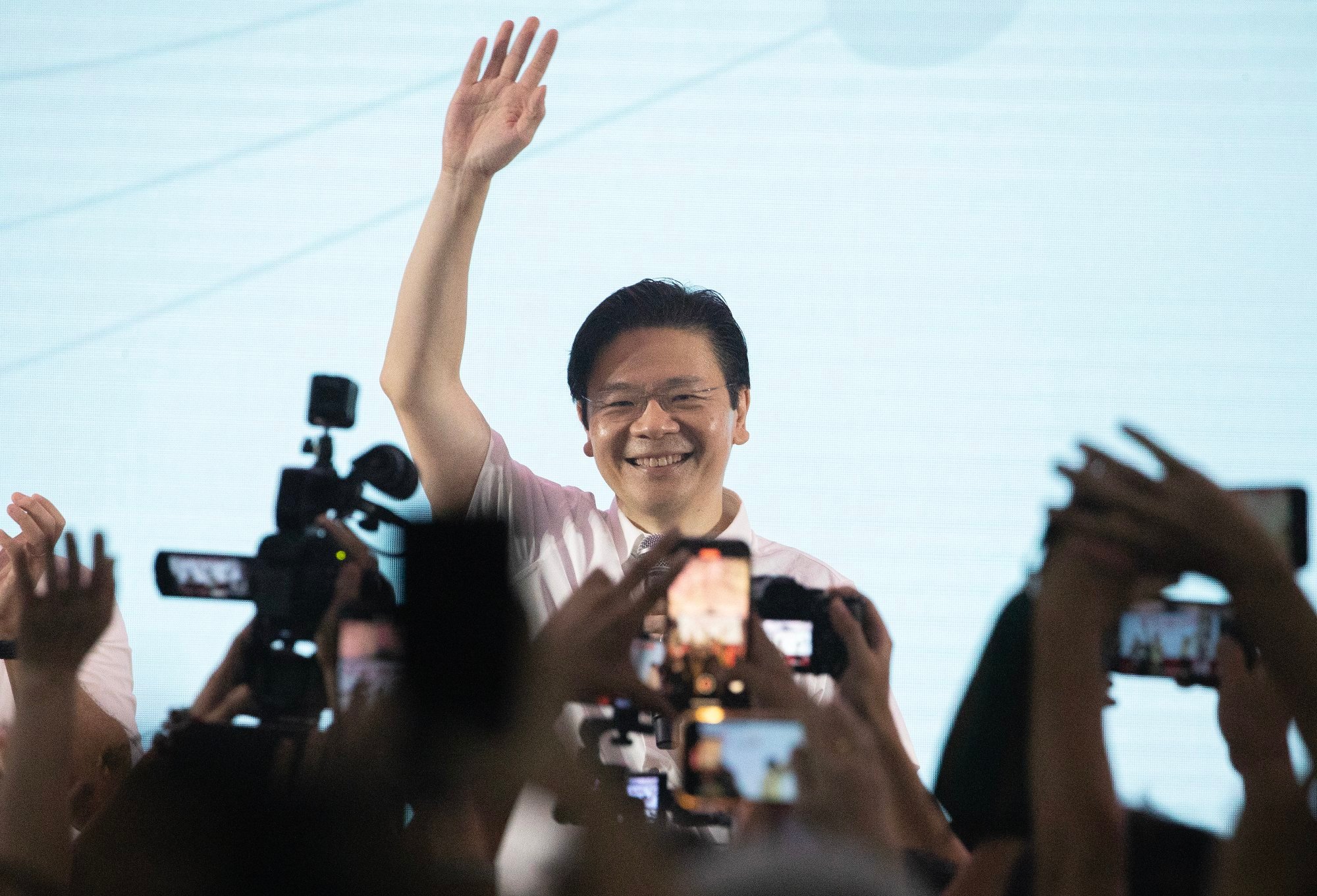
The PAP has won all of the republic’s 14 past general elections and with a supermajority that allows it to pass constitutional and other bills with ease. Among the 86 elected members in the country’s legislature, there are currently just eight opposition MPs, all from the Workers’ Party (WP).
The Singapore economy is projected to grow at 2.4 per cent this year, and inflation and unemployment are expected to remain largely unchanged.
The new prime minister’s speculation that the PAP could be at risk of losing power is therefore unlikely to sway the bookmakers, analysts say.
Rather, it is part of a standard PAP playbook warning voters not to take stable, competent government for granted – their hunger for more opposition voices could result in a so-called “freak election” that puts Singapore’s future in the hands of less capable politicians.
As a new prime minister untested at the polls, Wong also has a personal interest in tempering expectations. Even if the opposition increases its vote share and its parliamentary presence, which many expect, Wong would need to declare the result a resounding mandate for him and his team.
Wong said in the interview: “If you were to take not just the WP but one or two other opposition parties, if in the next election the contest is fiercer and we were to lose just a few percentage points, it is not unimaginable for two or maybe three opposition parties to come together, form a coalition and run the government.”
“[For them to] get more than 50 per cent, not at all unimaginable. And that is why when I say that I do not assume that PAP will win the next election or that I will automatically be the PM after the election, I say that seriously. This is the reality of our political situation today. It is no longer a dominant system, one-party system,” he said.
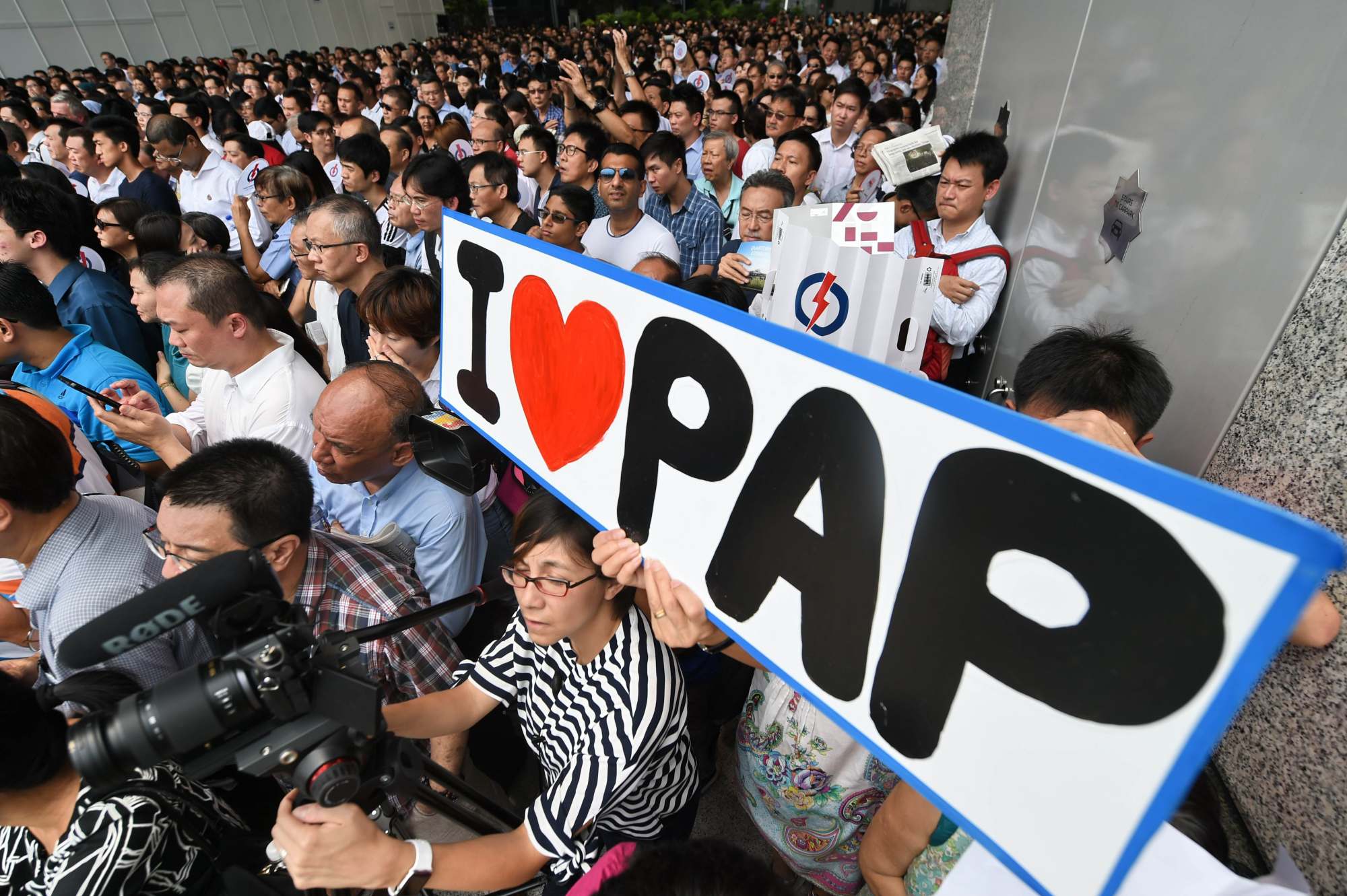
Reflecting commentators’ scepticism, former newspaper editor Bertha Henson said in a Facebook post on Wednesday: “Of course it’s not unimaginable. Anything is possible, but is it probable?”
A spokesman from a small opposition group, the Progress Singapore Party, issued a rejoinder, saying that the chance of having no opposition MPs elected into parliament is a “far more probable” scenario than the one Wong painted.
On the prospects of a coalition government, he said: “[This] would require an epic shift in public opinion to come to pass.”
In power for an uninterrupted 65 years, the PAP is the second-longest governing party in the history of countries with competitive elections, after Mexico’s Institutional Revolutionary Party, which led for 71 years from 1929 to 2000. The PAP looks practically certain to break the PRI’s record.
The PAP has never recorded a national vote share below 60 per cent since independence in 1965. Despite the growing appetite for opposition and calls for more checks and balances in the system, most Singaporeans do not want to remove the PAP from power.
“Even the opposition knows that the thought of this occurring would scare voters to return the PAP to power,” said Terence Lee, a politics and communications professor at the Sheridan Institute of Higher Learning in Australia.
The opposition has tried to reassure voters that its immediate goals are modest.
The WP is so anxious to avoid scaring potential swing voters with the spectre of a non-PAP government that its leader, Pritam Singh, chided a political scientist who wrongly claimed in a Straits Times commentary last month that the WP was seeking to “form the government at the next general election”. The analyst apologised to Singh for the error.
“Perhaps there is a view that such rhetoric will cause swing voters to turn conservative and vote PAP,” Singh wrote in a social media post. “The WP has been open about its electoral agenda for some years now. The medium-term goal is to play our part in ensuring at least one third of Parliament is not in the PAP’s hands.”
This would allow for a “better balanced political system” in place, he wrote. “Like many Singaporeans, the WP seeks an evolution, not a revolution of our political system.”
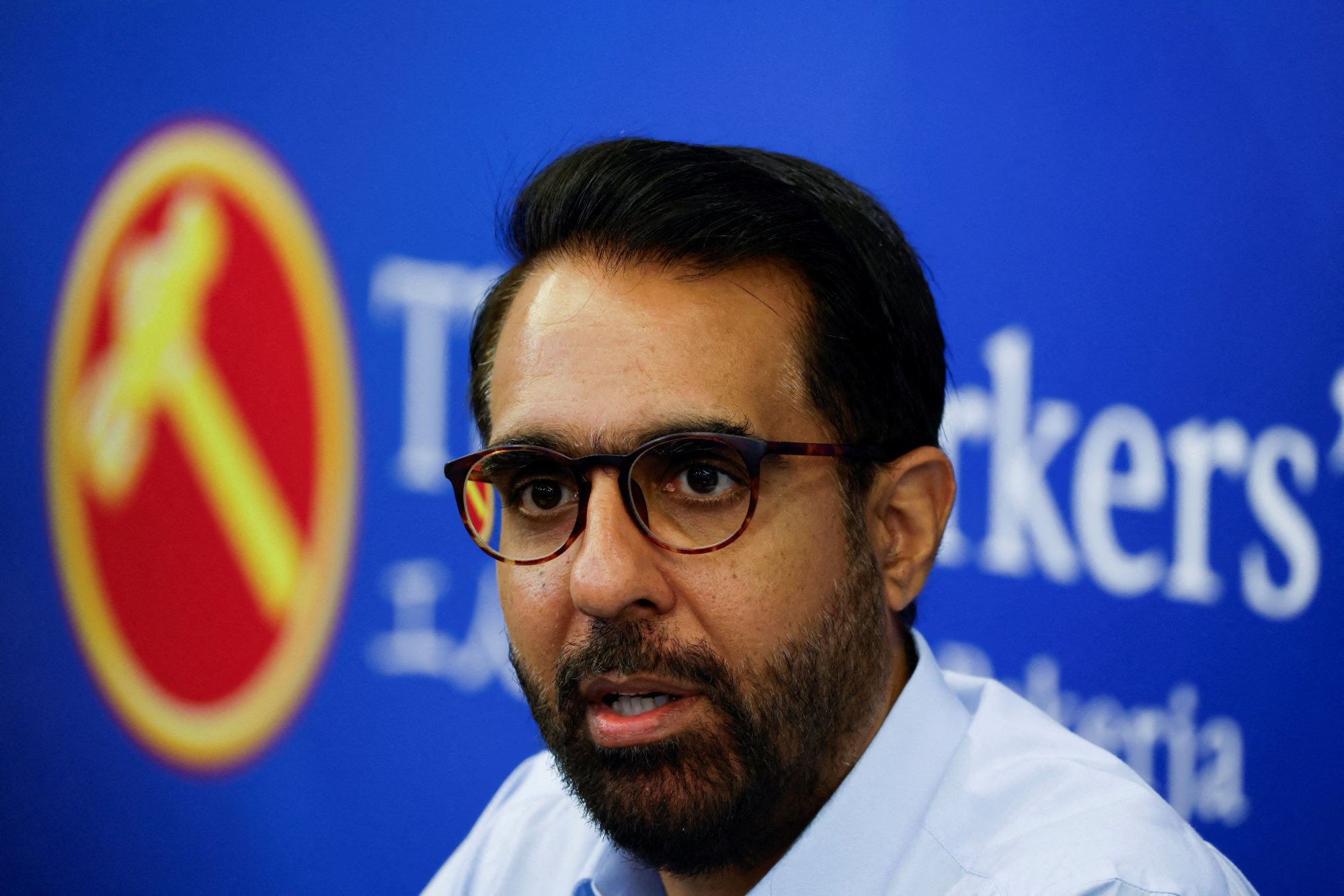
Speaking separately to This Week in Asia, three of the country’s bigger opposition parties – the WP, Singapore Democratic Party (SDP) and Progress Singapore Party – rejected Wong’s rhetoric. It was “intended to steer the electorate towards the familiar”, a WP spokesperson said, noting that the PAP’s dominance has been “firmly entrenched since Singapore’s independence”.
“It is important to reiterate that the PAP’s political dominance has been firmly entrenched since Singapore’s independence and that it has never lost its parliamentary supermajority, let alone been challenged for control of government,” the spokesperson said in response to questions.
Currently, the elected opposition MPs make up less than 10 per cent of the 93 available elected seats, which include non-constituency seats for top runners-up. And this took “decades of painstaking sacrifice and persistent efforts”, stressed the WP spokesperson.
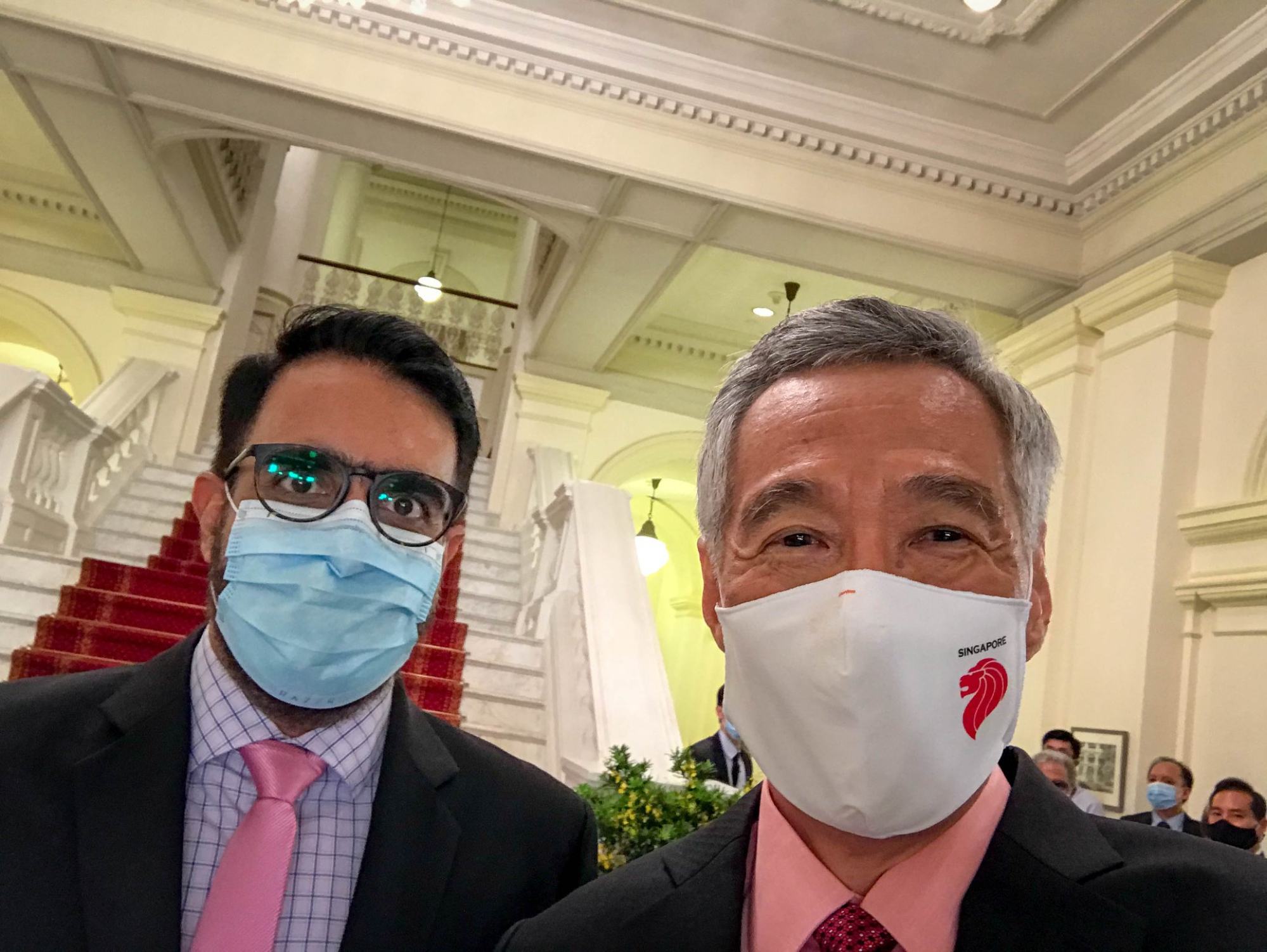
Paul Tambyah, a Singaporean doctor and chairman of 44-year-old SDP, described the possibility of an opposition coalition running government as “really far-fetched”.
“None of the other parties have any elected MPs. To go from that to a working majority would require a really vivid imagination, something alien to most Singaporeans,” he said, stressing that the “odds are stacked against” alternative parties due to the outsize political machinery behind the ruling party.
He cited how the People’s Association – which manages more than 100 community clubs and grass roots organisations – has close associations with the party, suggesting the statutory board serves as an additional platform for the party to spread its influence.
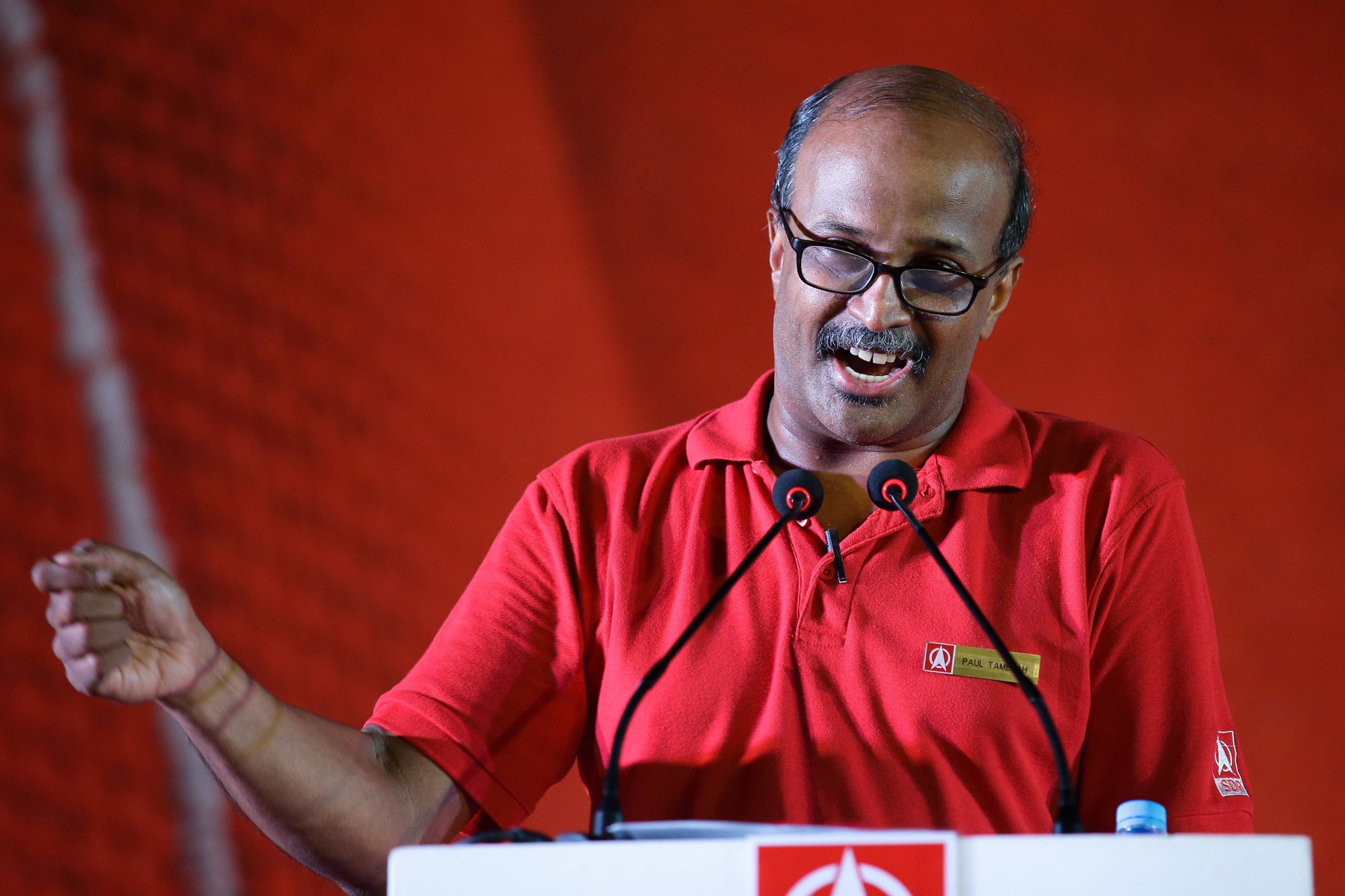
The government had previously rebutted these allegations, saying “it serves the government of the day” and “does not allow its events or venues to be used for partisan purposes by any political party and serves all Singaporeans, regardless of their political leanings”, in a parliamentary reply in May last year.
“The PAP has been the incumbent for a very long time so the advantages of incumbency are deeply entrenched.”
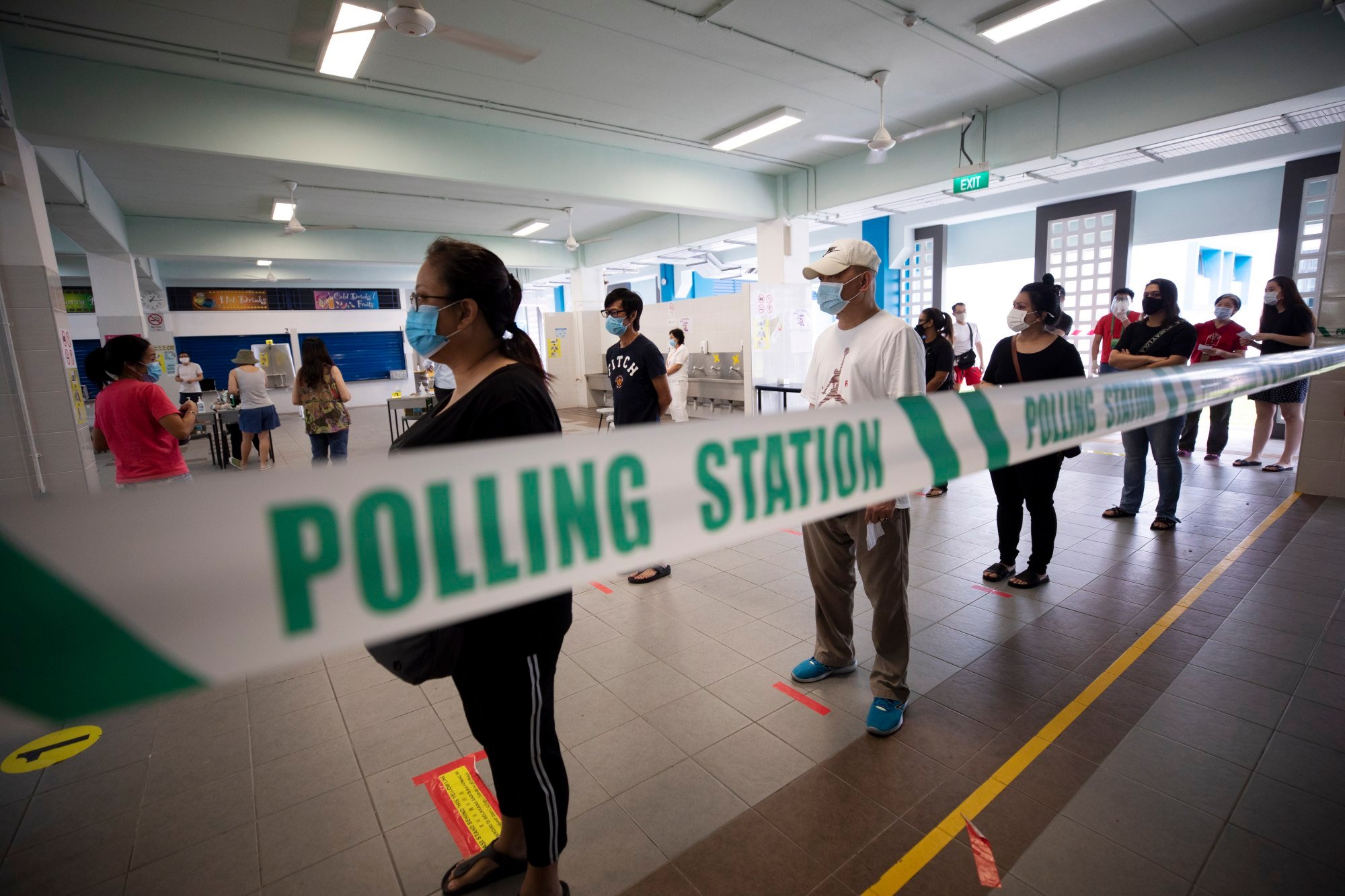
The Singapore electoral map is made up of single seats and multi-seat wards to engender greater racial representation according to the government but is seen widely as a means to raise the barriers to entry for smaller parties.
“The GRC system also raises the barriers to opposition parties becoming competitive, and amplifies the majoritarian tendencies of Singapore’s political system.” Low noted.
The opposition won its first GRC in 2011 and second in 2020. These results have prompted PAP stalwarts to try and forge the narrative that these once impenetrable electoral fortresses of the PAP are now more contestable, a claim the opposition parties have rejected citing what they describe as overall an uneven playing field.
It is from this logic of vulnerability that there is credence to Wong’s scenario, said a veteran PAP grassroots leader who declined to be named. “The math is not improbable. If a couple more GRCs fall, it can happen. Call it a scare tactic or whatever, but we have to take it seriously, the vote can go,” he said.
But the stark reality is beyond matters of political machinery, Singaporean voters are not ready or willing to have a non-PAP government when the ruling party has by and large delivered. The tried-and-tested Singapore model works despite rumblings or unhappiness over certain policies, observers say.
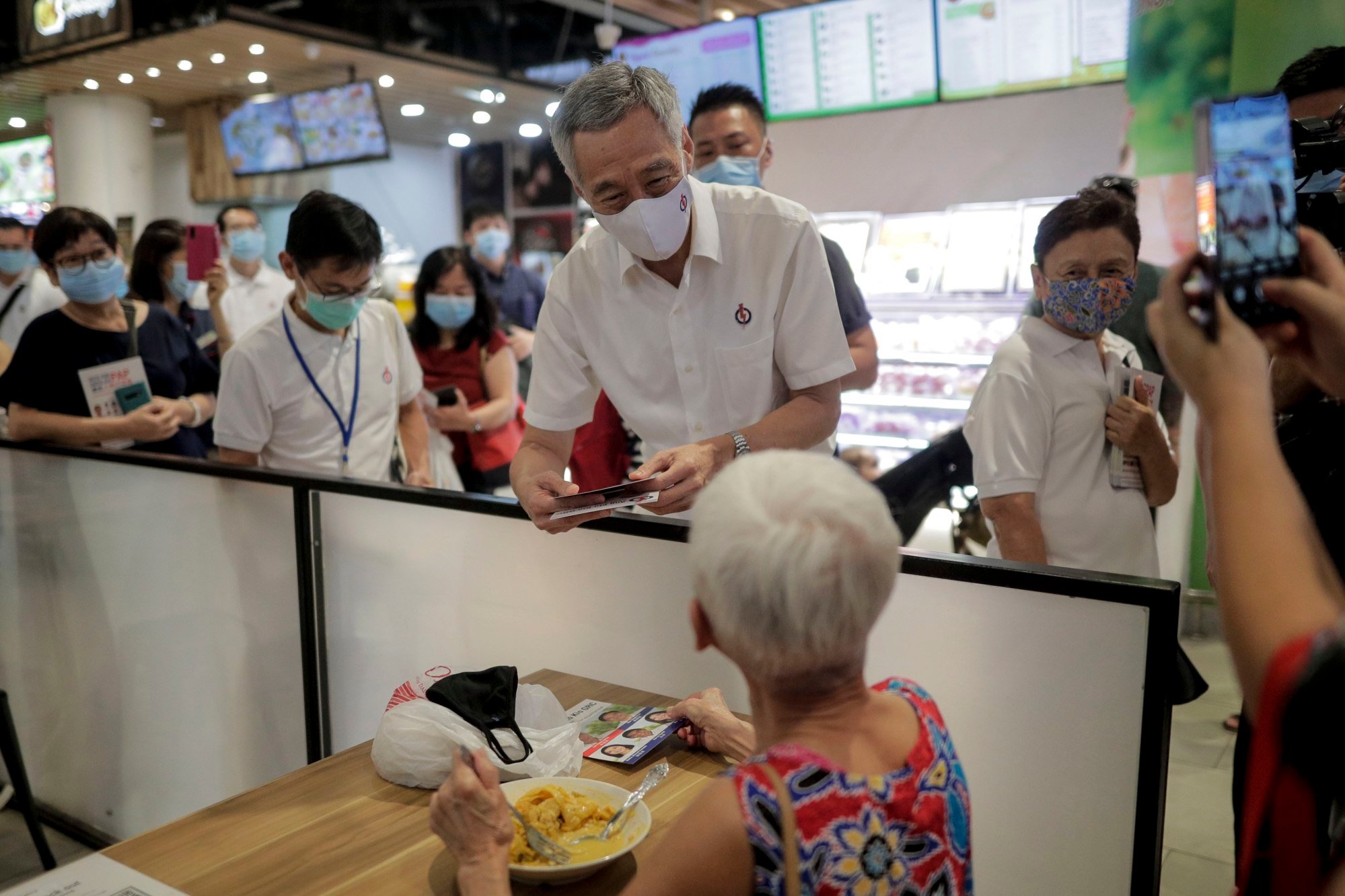
While an opposition coalition running government is unlikely to happen in the near future, a “more plausible though still unlikely scenario” of opposition parties denying the PAP a two-third majority still rests on many factors, says Low.
“If such a scenario were to materialise, the question for the PAP is whether it has enough bench strength to form a strong, competent cabinet. For the opposition parties, if it were to deny the PAP a two-thirds majority, the question is whether they can put together a credible shadow cabinet.”
While parliament remains a PAP stronghold, the ruling party’s share of the popular vote is seen as more vulnerable. The national vote share is widely seen as a barometer of support for the PAP.
Given how it has never recorded below 60 per cent for this vote share since independence in 1965, Wong would not like this psychological barrier breached in his first election as prime minister, even if it has no constitutional impact.
In the 2020 election, the PAP secured 61.24 per cent of the popular vote. In head-to-head contests with the WP, however, the ruling party crossed the 60 per cent bar in just one constituency.
Responding to Singaporeans’ desire for a less dominant PAP government, Wong has said he intends to take on a more “open, consultative” leadership style.
Terence Lee, the political scientist, is not impressed. “The last two former prime ministers Goh Chok Tong and Lee Hsien Loong both made similar proclamations when they came into office. To be fair, they delivered to a small degree, but nowhere near sufficient for Singaporeans.”
The PAP has recognised the need to listen to the ground and carve policies that can earn the support of as big a majority as possible even as it makes tough calls, and now Wong has to do even more, analysts say.
“It makes sense for Lawrence Wong to say emphatically that he would consult more, but the proof is in the pudding, and Singaporeans will be the judge of that, especially at the ballot box,” the Australia-based analyst said.
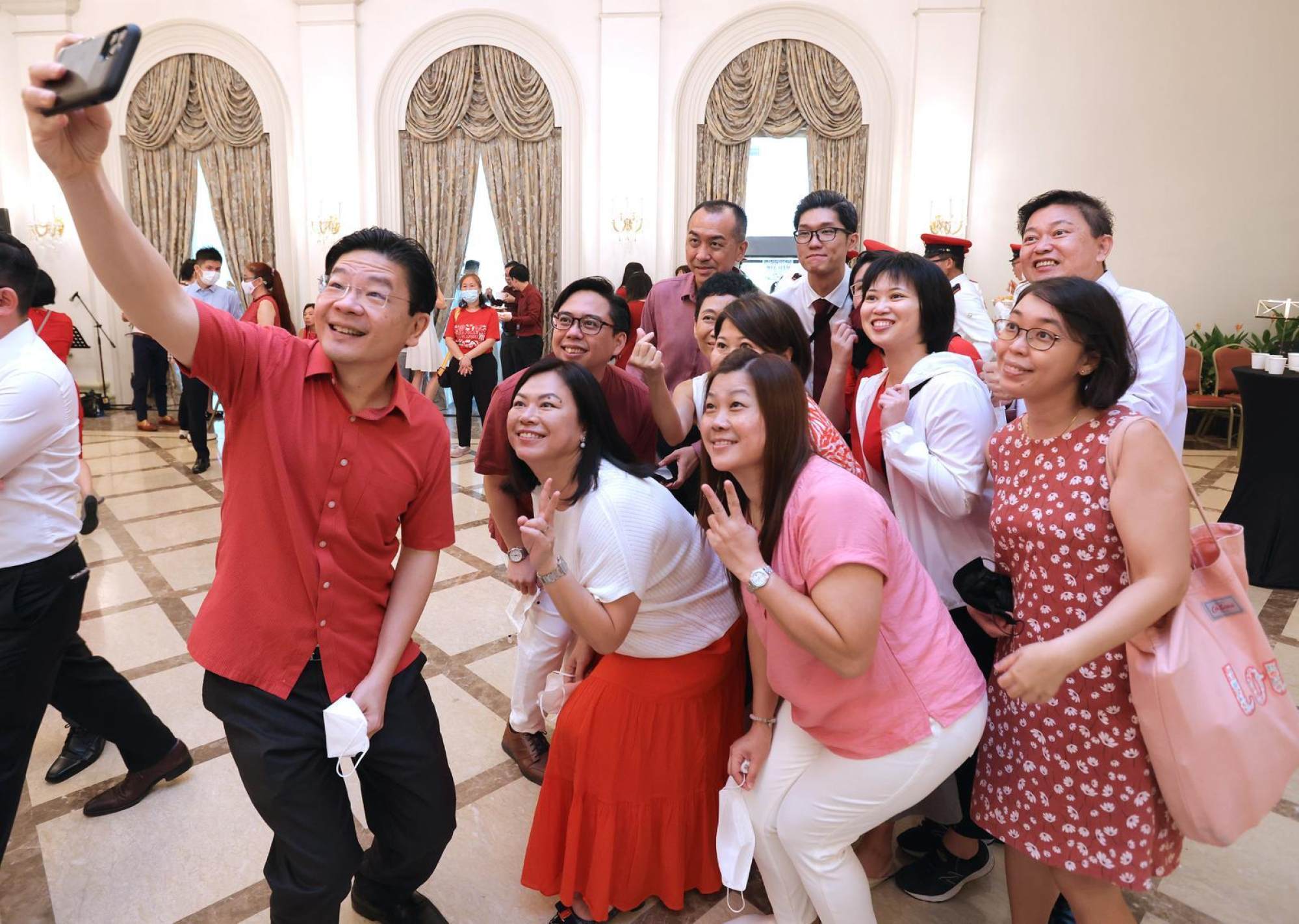
To slow the opposition’s growth, the PAP needs to open up more room for citizen participation and democratic deliberation, on top of restricting the “use of repressive tools of the state to a bare minimum”, Donald Low said.
“Citizens would have less reason to vote for the underdog if they don’t see the state using a big stick on its political opponents and its critics,” he said. “Also, when citizens can participate and criticise freely, they will see that parliament isn’t the only institution where such debates can be had.”
The next general election will take place against the backdrop of global uncertainty, or as Wong described it, a “messier, riskier, more violent world”. The PAP has tended to do well in such times, a stance analysts have previously described as the “flight to safety”. Domestically, however, the rising cost of living, job uncertainties and lingering suspicions over foreign talent can all cohere to drag it down.

